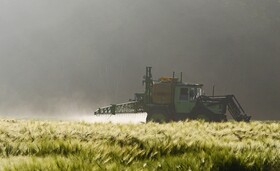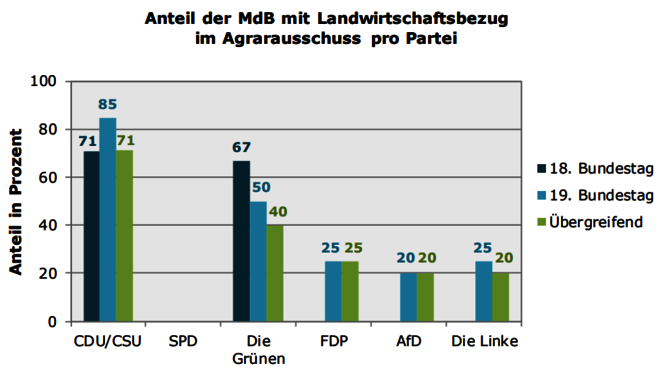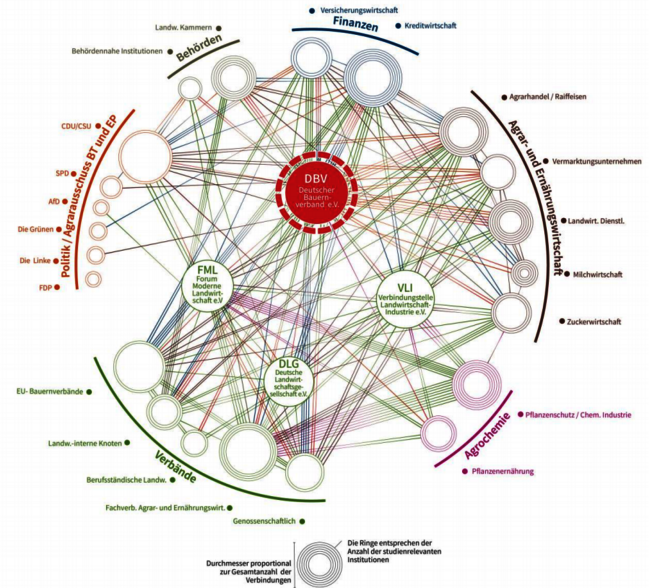


In Germany, agriculture represents a market worth billions of euros, in which industry in particular earns money: the chemical industry through the sale of medicines and pesticides, the agricultural trade through the sale of fertilizers and feed mixtures, the agro-finance industry through the granting of loans, for example for machinery or stables, the meat industry through the slaughtering and cutting up of animals and, last but not least, the trade through the sale of food. In the following, the interconnections of these industries with politics will be shown. The source is the study "Interdependencies and interests of the German Farmers' Association (DBV)" by NABU and the Institute for Economics and Labor from 2019.
The distribution of CAP funds is decided by the European Union's Agricultural Committee. More than 40 percent of the members of the Bundestag (MdB) have an agricultural connection, a large part also represents high positions in the agricultural industry, in the farmers' association or in the agricultural-related financial sector. Thus, it is mainly people who are multifunctional or multiple functionaries who exert influence. The proportion of members of the Bundestag with a connection to agriculture is particularly high in the CDU/CSU parliamentary group: up to 85 percent of its members have a connection to agriculture and agribusiness. Eight of the CDU/CSU members of the Agriculture Committee with a connection to agriculture also hold leadership positions in the various levels of the farmers' association.

The study covers key areas in German agricultural policy and the agribusiness and food industry, distinguishing between seven groups: Finance, Agri-Food, Agrochemical, Associations, Politics, Authorities, Foundations. Particular attention was paid to the economic sectors upstream and downstream of the agricultural sector, i.e. finance and the processing agri-food industry. A total of 93 actors from politics and more than 75 institutions such as associations and companies were included in the analysis, whereby more than 560 direct and indirect links between the financial sector, agrochemicals, agri-food industry and associations as well as several network nodes for communication could be analyzed. It is questionable whether it is still possible to speak of an independent agricultural policy in the Bundestag and the EU Parliament. According to the authors of the study, the German Farmers' Association (DBV) plays a key role. This is where important players and institutions come together to coordinate their agricultural and environmental policy positions.
The result of the study is shown in the figure below.

It is clear that the network, with its many personal and institutional links, covers all the main areas of agricultural policy and agribusiness, and its complexity is almost impossible to penetrate. On the one hand, this concerns the networking of the German Farmers' Association with corporate sectors such as finance, agricultural trade and the processing industry. On the other hand, the sector-specific interest groups are also closely intertwined. Connections to politics and authorities function via members of parliament who are intertwined with the DBV as well as the agricultural industry. These interconnections could be indications of an interest-driven influence on legal and funding policy frameworks in the EU and in Germany. In addition, they provide an explanation of why decisions in agricultural policy are made in contradiction to current scientific recommendations and findings: According to the study, reforms for the benefit of the environment and nature, animal welfare as well as water and climate protection often fail due to systematic prevention by interest groups.
The shape of the CAP for the coming funding period can be found here.